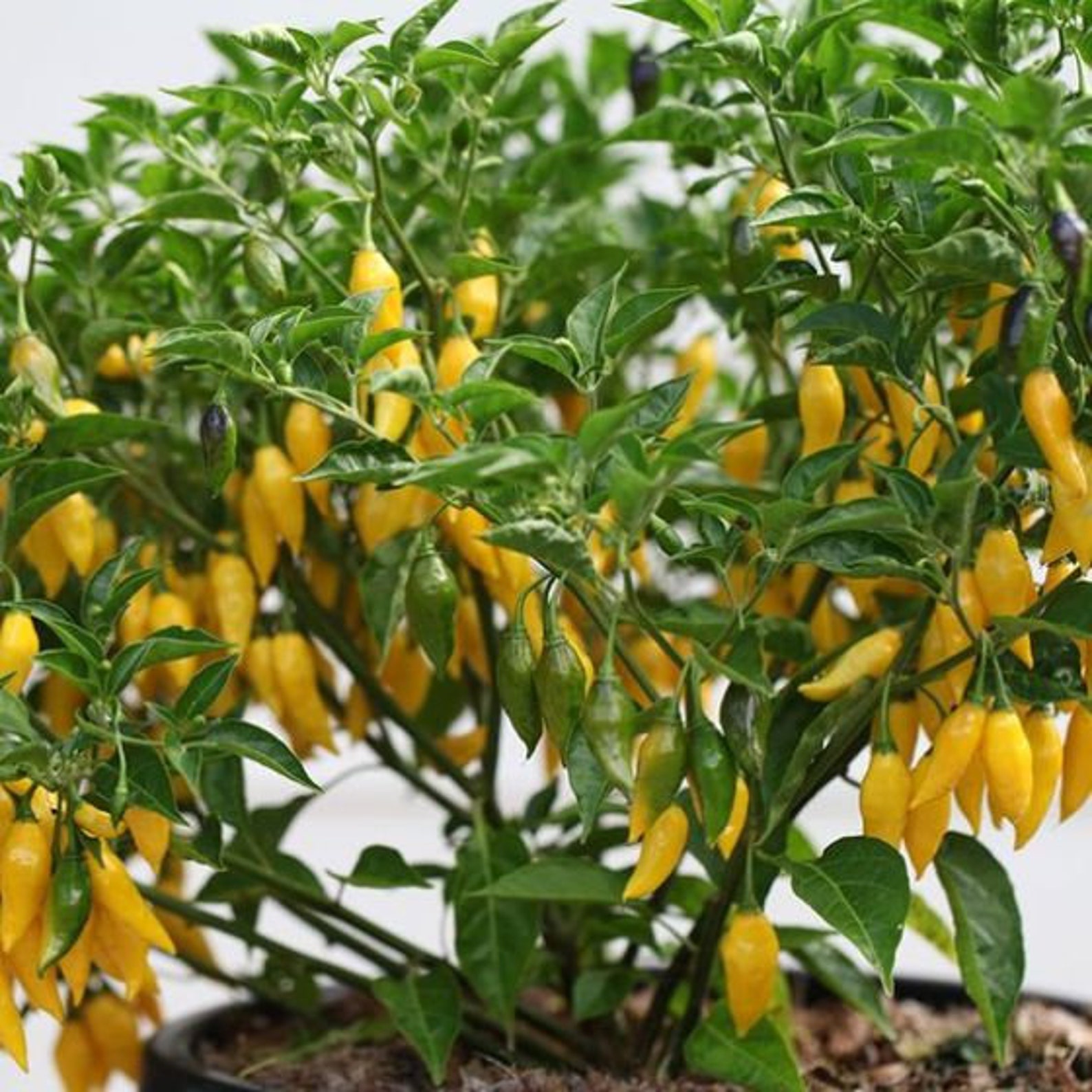Unveiling the captivating world of the aji lemon chilli plant, we embark on a journey that intertwines culinary delights with medicinal marvels. Its vibrant fruits, boasting a zesty lemon hue, hold secrets that tantalize taste buds and nourish bodies alike.
With its compact stature and eye-catching foliage, the aji lemon chilli plant thrives in warm climates, demanding well-drained soil and ample sunlight. Its unique flavor profile, a harmonious blend of citrusy notes and moderate heat, sets it apart from its chilli counterparts.
Aji Lemon Chilli Plant Characteristics

The aji lemon chilli plant is a compact and bushy perennial shrub that belongs to the nightshade family. It typically grows to a height of 2-3 feet, with a similar spread. The plant has a dense and upright growth habit, with sturdy stems and lush foliage.
The leaves of the aji lemon chilli plant are simple, ovate-shaped, and have a glossy texture. They are dark green in color and have slightly serrated edges. The plant produces small, white flowers that grow in clusters at the base of the leaves. These flowers are followed by the development of the chilli peppers.
Unique Features
- The aji lemon chilli plant is known for its distinctive lemon-shaped fruits. These chillies are small and round, with a bright yellow color when ripe. They have a thin skin and a juicy, flavorful flesh.
- The aji lemon chilli plant is relatively heat-tolerant and can be grown in a variety of climates. However, it prefers warm, sunny conditions and well-drained soil.
- The aji lemon chilli plant is a prolific producer of chillies. It can produce hundreds of chillies per plant during a single growing season.
Aji Lemon Chilli Plant Cultivation
Growing aji lemon chilli plants requires careful attention to their specific needs. From seed germination to harvesting, various factors contribute to their successful cultivation.
Seed Germination
Aji lemon chilli seeds should be sown in well-draining seed compost at a depth of 5mm. Keep the compost moist and warm (20-25°C) for optimal germination. Seedlings typically emerge within 10-14 days.
Transplanting
Once the seedlings have developed their first set of true leaves, they can be transplanted into individual pots or into a garden bed. Harden off the seedlings by gradually exposing them to outdoor conditions before transplanting. Space the plants 45-60cm apart to allow for proper growth and air circulation.
Watering
Aji lemon chilli plants require regular watering, especially during hot and dry periods. Water deeply and allow the soil to dry out slightly before watering again. Avoid overwatering, as this can lead to root rot.
Fertilizing
Fertilize the plants every 2-3 weeks with a balanced liquid fertilizer. A fertilizer with a ratio of 10-10-10 or 15-15-15 is suitable.
Pest Control, Aji lemon chilli plant
Common pests that affect aji lemon chilli plants include aphids, spider mites, and whiteflies. Use insecticidal soap or neem oil to control these pests.
Companion Planting
Companion planting with basil, marigolds, or nasturtiums can help deter pests and improve the growth of aji lemon chilli plants.
Crop Rotation
Practicing crop rotation by avoiding planting aji lemon chilli plants in the same location for multiple consecutive seasons helps prevent soil-borne diseases and nutrient depletion.
Aji Lemon Chilli Plant Uses

Aji lemon chillies, with their vibrant yellow color and zesty flavor, offer a versatile range of culinary and medicinal applications.
Their unique flavor profile, combining a tangy lemon zest with a moderate heat level, makes them a delightful addition to various dishes.
Culinary Applications
Aji lemon chillies are highly valued in the culinary world for their distinct flavor and aroma.
- They are commonly used fresh, sliced or diced, to add a vibrant touch and a zesty kick to salads, salsas, and ceviches.
- Their tangy flavor pairs well with grilled meats, fish, and vegetables, enhancing their natural flavors.
- Aji lemon chillies can also be dried and ground into a powder, creating a versatile spice that can be added to soups, stews, and sauces.
Medicinal Properties
Beyond their culinary uses, aji lemon chillies possess several medicinal properties.
- They are a rich source of vitamin C, an essential nutrient that supports immune function and skin health.
- Capsaicin, the compound responsible for the heat in chillies, has been shown to have anti-inflammatory and pain-relieving effects.
- Aji lemon chillies contain antioxidants that help protect against oxidative damage, which is linked to various chronic diseases.